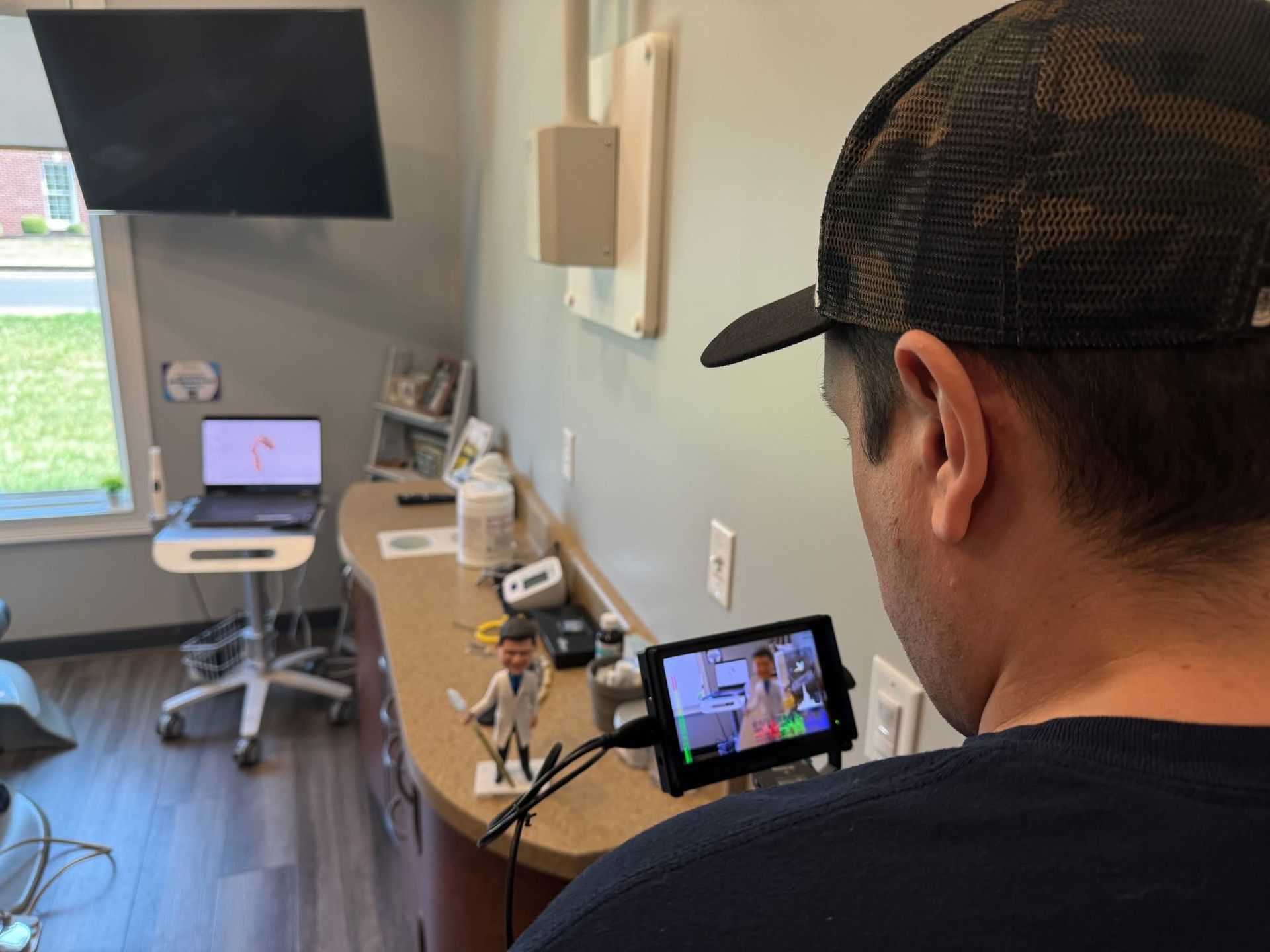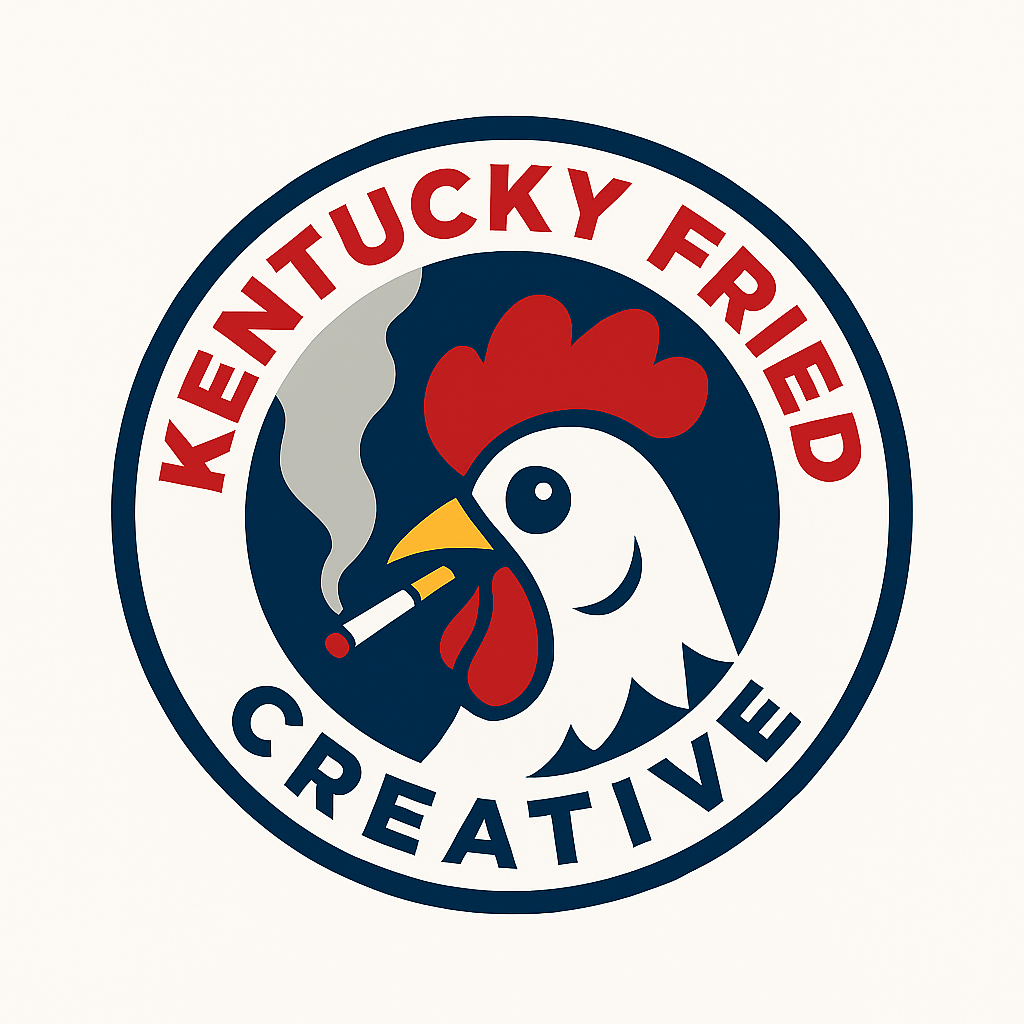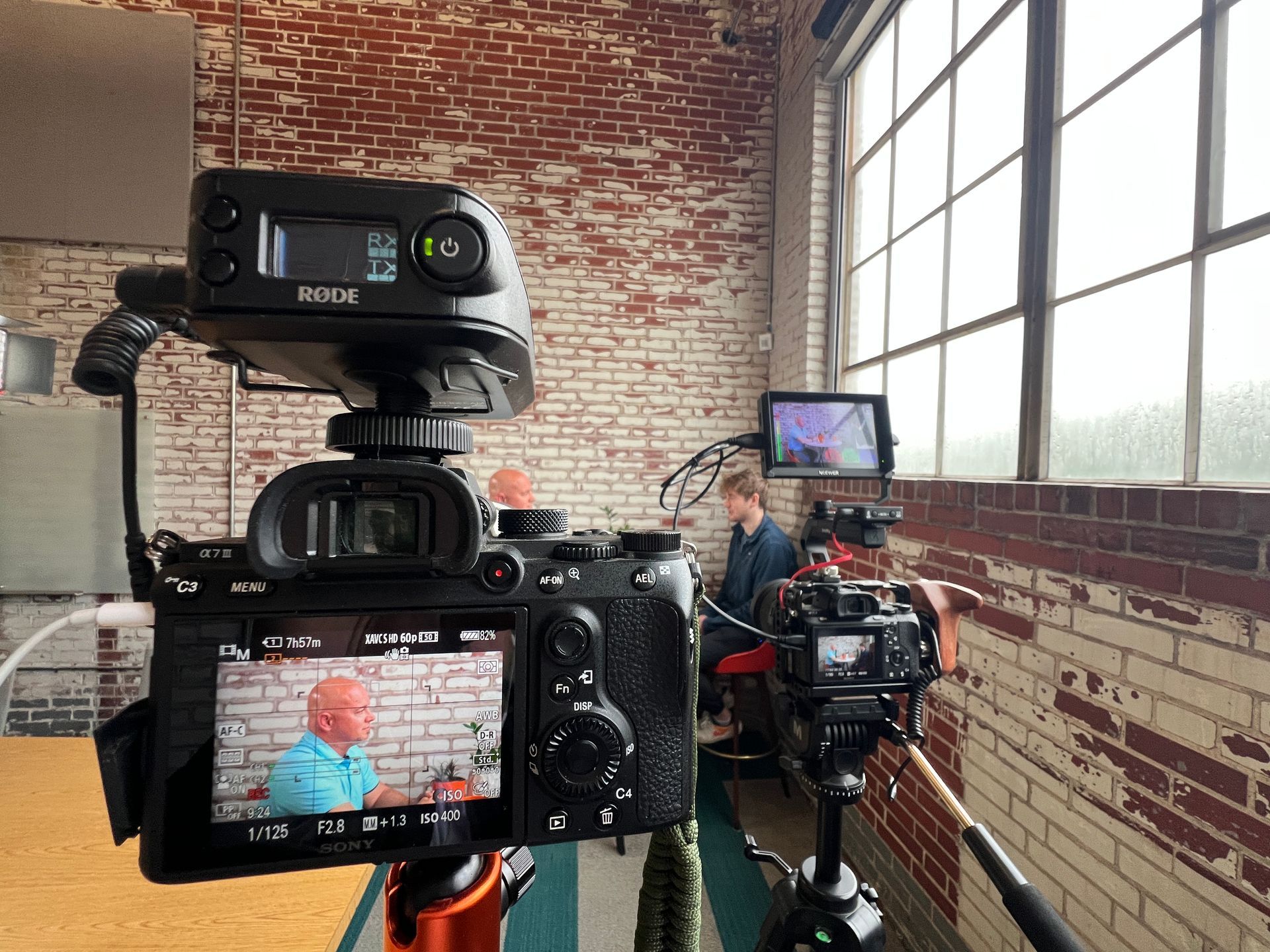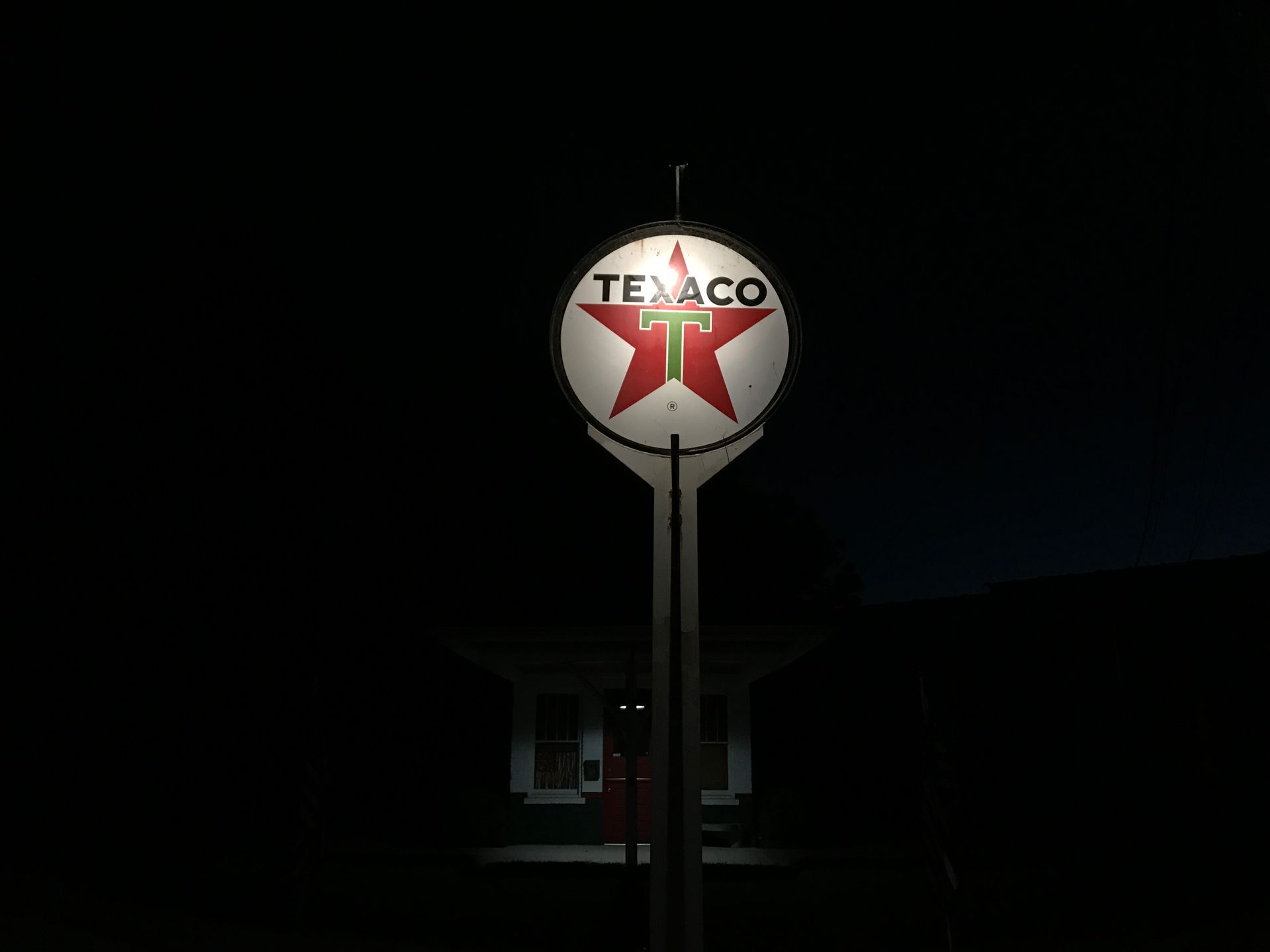Cracker Barrel Rebrand: What Small Businesses Can Learn

Well, that escalated quickly.
In August 2025, Cracker Barrel unveiled a new logo that removed the iconic "Uncle Herschel" character—the old-timer sitting in a chair by a barrel—and replaced it with a simplified text-only design. The backlash was swift and brutal. The company's stock plunged, losing nearly $100 million in market value. Within a week, Cracker Barrel reversed course entirely, announcing that the new logo was "going away" and Uncle Herschel would remain.
As someone who has extensive experience navigating corporate marketing strategies and now helps small businesses compete in today's landscape, this whole situation fascinates me. Not because Cracker Barrel failed, but because it perfectly illustrates why branding has become more critical—and more dangerous—than ever for businesses of all sizes.
The Cracker Barrel Controversy: What Really Happened
Look, I'm not trying to trigger anyone with keywords here—I'm just using the logical part of my marketing brain, so take my opinion how you want, but it's purely logic and not a slight on anyone or anyone's affiliation in society.
Let's get the facts straight. Cracker Barrel's logo change was part of a larger $700 million transformation plan to "shake off its stodgy image and lure in new diners," according to CEO Julie Felss Masino. The company wasn't trying to be "woke" or abandon its values—they were trying to modernize for digital platforms and attract younger customers.
The backlash wasn't just from conservatives; critics described the new design as "very generic," lacking the storytelling power of the original. Even the Democratic Party's official account weighed in, saying "We think the Cracker Barrel rebrand sucks too."
Here's what struck me: The company's revenue was roughly $3.5 billion in 2024, up less than 1% from the previous year, while net income fell to $40.9 million from $99 million in 2023. This wasn't a company making changes on a whim—they were struggling and needed to evolve.
The Truth About Corporate Rebranding: It's Not About Politics
Here's where everyone gets it wrong. Corporate rebranding isn't some grand political statement—it's usually about survival, growth, or staying relevant. And honestly, most successful rebrands happen without anyone raising an eyebrow.
Even though a company's leadership team may align their personal values with a certain political party, a brand redesign is, has been, and never will be political unless someone from the company makes it their official political stance—which Cracker Barrel never did. Their statements consistently emphasized that their values hadn't changed and they were simply modernizing for digital platforms and younger audiences.
Take these recent examples that sailed through without controversy:
McDonald's Ongoing Evolution: The Golden Arches have been continuously refined since 2018 with their "Speedee" font system and "Archery" logo approach that uses the arches in new ways—oversized, cropped, angled, bold. Their recent campaigns like "WcDonald's" (flipping the logo upside down for anime fans) generated excitement, not backlash.
Walmart's January 2025 Refresh: After 17 years, Walmart just unveiled a comprehensive brand update with a bolder wordmark inspired by founder Sam Walton's 1980s trucker cap, brighter "True Blue" colors, and a modernized "spark" logo. The $648 billion retailer is positioning itself as a "people-led, tech-powered omnichannel retailer." Response? Business as usual.
Columbia Sportswear's "Engineered for Whatever" Rebrand (2024-2025): After a decade, the outdoor giant launched their first major brand refresh with new typography, logo configurations, and color schemes. They returned to their irreverent 1980s/90s roots with bold marketing that shows outdoor adventures going hilariously wrong, complete with vultures, snakes, and avalanches. The outdoor community embraced the authentic, no-nonsense approach.
Bass Pro Shops/Cabela's Integration (2017-ongoing): When Bass Pro acquired Cabela's for approximately $5 billion (not $4 billion as initially announced), they gradually integrated the brands while maintaining both identities. Many Cabela's locations now feature dual branding, and customers can use gift cards interchangeably. The outdoor community accepted this as smart business consolidation.
Here's what's fascinating about this example: Bass Pro is literally running two separate brand identities for what is essentially the same company because customers have an emotional attachment to their preferred logo and store name. Think about how absurd that is from a business efficiency standpoint. They're maintaining separate signage, separate marketing materials, separate brand guidelines—all because consumers would have a meltdown if their beloved Cabela's suddenly became Bass Pro overnight.
But we're perfectly fine with this arrangement because it fits our comfort zone. Nobody's calling it "woke" or demanding boycotts. Why? Because both brands stayed in their lane, served their customers well, and didn't challenge anyone's preconceived notions about what an outdoor retailer should represent.
Isn't it interesting how society readily accepts multiple identities when it serves our convenience—corporations can maintain dual brands, people can have professional and personal personas, we can present differently in different contexts—but the moment someone else wants to claim a different identity that doesn't align with our traditional expectations, suddenly we have issues with authenticity and "picking a lane." We're remarkably selective about when flexibility and self-determination are acceptable. It's the same phenomenon we see everywhere: we only seem okay with change when it fits our metrics of comfort.
These companies understood something Cracker Barrel initially missed: successful rebrands maintain emotional connection while evolving visual appeal.
Why Cracker Barrel Will Be Fine (And What That Means for You)
Here's my honest take: Cracker Barrel will weather this storm just fine. They've got nearly 660 corporate-owned locations across the U.S. serving comfort food that people love. A logo doesn't change how biscuits are made or whether the mac and cheese still hits the spot.
The company quickly corrected course, demonstrating that they listen to their customers. That's actually good leadership, not weakness. They tested something, it didn't work, and they fixed it. Move on.
Don't get me wrong—I'm not thrilled that a company bent their entire rebrand due to consumer backlash. I'm all about being authentically you, and there's something to be said for having the courage of your convictions. But from a pure leadership perspective, recognizing when you've misjudged your audience and pivoting quickly shows decisiveness and humility. Sometimes good leadership means admitting you made a tactical error, even if your strategic vision was sound.
But here's what keeps me up at night: if a company with $3.5 billion in revenue and massive brand recognition can lose $100 million in market value over a logo change, what does that mean for small businesses trying to establish themselves?
The Real Lesson: Branding Is More Important Than Ever for Small Business
This whole Cracker Barrel situation proves that in today's politically charged, social media-driven world, branding decisions carry exponentially more weight than they used to. Every visual choice, every message, every campaign gets scrutinized, shared, and judged faster than ever.
For small businesses, this reality is both terrifying and liberating:
The Terror: One misguided branding decision can torpedo years of relationship-building. Social media amplifies mistakes instantly, and small businesses don't have Cracker Barrel's resources to weather major backlash.
The Liberation: Small businesses have something corporate giants often lose—authentic relationships with their communities. When you know your customers personally, when you're embedded in your local market, when your brand reflects genuine values rather than focus-group findings, you're less likely to make tone-deaf decisions.
What This Means for Your Business
As a marketing strategist who's worked with Fortune 500 companies and now focuses on small businesses across Kentucky, here's what I've learned:
Authenticity Beats Perfection: Successful rebrands don't just follow trends; they authentically resonate with modern consumers while staying true to core values. Your brand should feel like you, not like what you think will sell.
Know Your Audience Intimately: Cracker Barrel's mistake wasn't the logo itself—it was misunderstanding how deeply their customers connected with Uncle Herschel. Small businesses have an advantage here: you can actually talk to your customers, not just survey them.
Evolution Over Revolution: The most successful rebrands are evolutionary rather than revolutionary, maintaining core brand recognition while introducing softer, more human elements. Think refinement, not replacement.
Test Before You Leap: Large corporations can afford $100 million mistakes. You can't. Start small, gather feedback, adjust accordingly. But don't let fear of change keep you stuck in 1995.
Have the Courage to Lead: Sometimes your customers don't know what they want until you show them. Steve Jobs famously said, "Customers don't know what they want until you show it to them." While you should absolutely listen to feedback about your core product or service, don't let nostalgia hold your visual evolution hostage.
The Kentucky Fried Creative Approach
This is why we take a different approach at Kentucky Fried Creative. We're not here to reinvent your brand for the sake of looking modern. We're here to help you communicate who you already are more effectively.
When we work with small businesses across Kentucky, we start with authentic conversations: What makes you different? What do your customers actually value? How can we amplify your strengths without losing your soul?
Because here's the truth: in a world where billion-dollar companies can stumble over logo changes, small businesses with genuine community connections and authentic brands have a massive competitive advantage.
Your Brand Is Your Business Foundation
The Cracker Barrel debacle will fade, just like every other brand debacle before it. But the lesson remains: your brand is no longer just how you look—it's how your community perceives your values, your authenticity, and your relevance to their lives.
For small businesses, this isn't about having the biggest marketing budget or the fanciest design agency. It's about understanding your community so deeply that your branding decisions feel natural, not manufactured.
That's the kind of marketing partnership we offer—strategic expertise without corporate disconnect, professional polish without losing your personality, and growth strategies that strengthen rather than abandon what makes you unique.
Ready to build a brand that can compete with corporate giants while staying true to your community? Let's discuss what authentic marketing entails for your business.
---
Kentucky Fried Creative helps small businesses across Kentucky develop authentic marketing strategies that compete with corporate giants without losing their souls. Ready to strengthen your brand foundation? Contact us for a consultation that could change how you think about your business.
Kentucky Fried Creative




